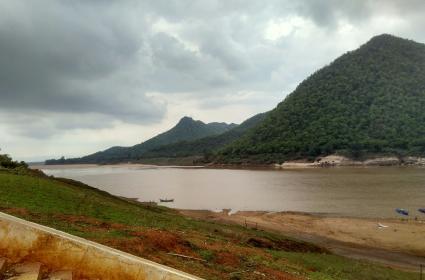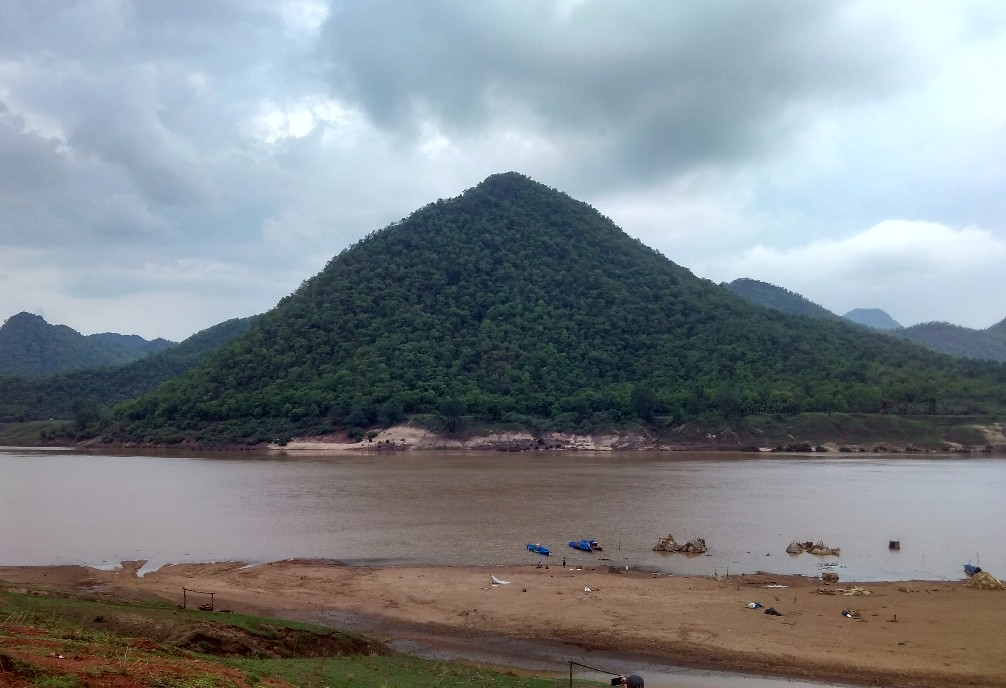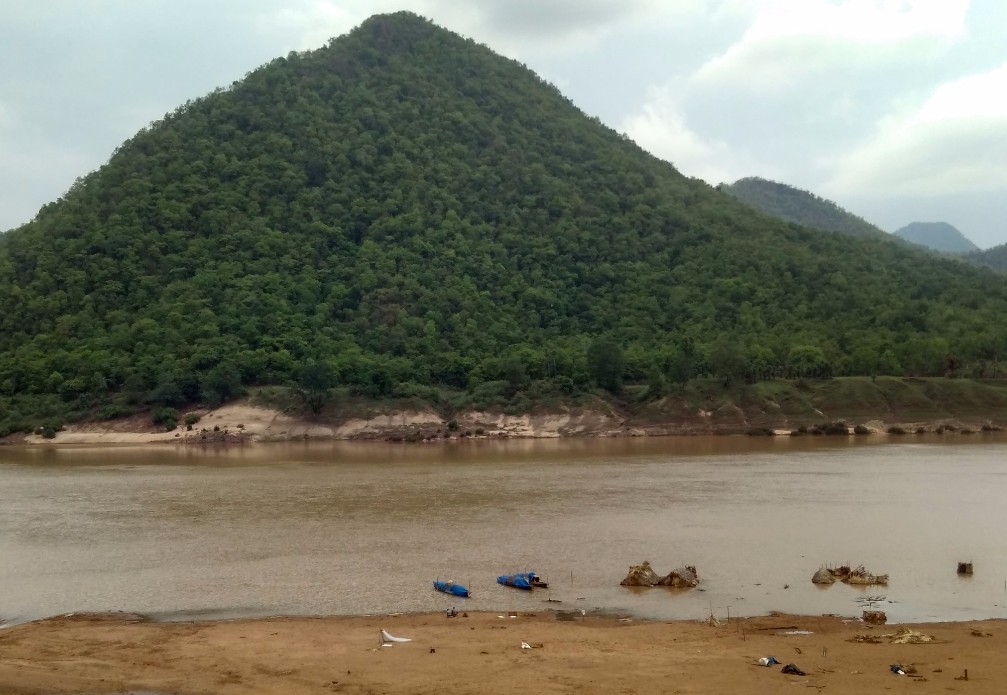Massive Scam In Polavaram Rehab Plan: Politicos, Power-Brokers Take The Cake, Leaving Tribals In The Lurch

By Rahul Maganti
The Andhra Pradesh government, which has taken up the Polavaram project as a prestige issue, has been paying scant attention to the hundreds of crores rupees worth of unchecked corruption, which is underway in the submergence areas in East and West Godavari districts. The rehabilitation and resettlement package, as mandated by the Right to Fair Compensation and Transparency in Land Acquisition, Rehabilitation and Resettlement Act of 2013, is supposed to be given to the people who are affected by the project, but is being given to a syndicate of politicians and brokers – most of them non-tribals – with the tacit support of the officials.
At least 338 villages on the banks of the Godavari, spread across 9 mandals in the Schedule-V areas of Andhra Pradesh, will be a thing of the past if this project becomes a reality. Three lakh people – including 1.5 lakh tribals, 50,000 Dalits and around the same number of OBCs – will be displaced from 10,000 acres of forest land and 1,21,975 acres of non-forest land. Another 30000 hectares (75000 acres) of land is being acquired for canals, distributaries, townships and green belt.
Of these 9 mandals, two of them – Kukunoor and Velairpadu – fall in the West Godavari district under Integrated Tribal Development Authority (ITDA), KR Puram, from where most of the allegations of corruption have been making rounds. The syndicate – comprising of politicians and brokers close to the officials – have been tampering with the land records and have got their names written against the survey number in the webland entries. However, the people who are enjoying and cultivating the land are mostly tribals and are different from the people whose names were recorded in the webland. It is these people whose names are falsely recorded in the webland entries who are getting the R&R compensation as against the actual tillers of the land.
In some cases, notifications were even issued for roads and village ponds and compensation credited in the accounts of the people close to the officials, local politicians and the brokers.

One such classic example of a possibly hundreds of crores scandal is the village of Sridharaveleru in Kukunoor mandal. Survey No 15 is the village community pond of 15 acres while Survey number 137 is a road. But, even then the land acquisition notifications were issued by the then ITDA Project Officer (PO), S Shanmohan. Not surprisingly, the notifications were not published in any local newspaper, as the law mandates, but were hand-written by the MRO with the signature of the PO and pasted on the walls of the Panchayat Office. The compensation for these survey numbers has been awarded to the people who are close to the PO, Shanmohan. “The PO would have made around 1 crore from such illegal deals just from this panchayat alone,” says a local reporter working with the Telugu daily who wished to remain unidentified fearing repercussions from PO Shanmohan.
Since the whole of submergence area fall under the Scheduled V area, the cases of violation of Andhra Pradesh Land Transfer Regulation Act (popularly known as 1/70) were also high. This act was first enacted in 1959 to put a check to the alienation of land from tribals to the non-tribals, which is a phenomenon which started post the independence. Dominant caste non-locals from Krishna, Guntur and Godavari districts started migrating to the forest areas where tribals lived and brought the land by paying back paltry sum to the tribals and often manipulating the revenue officials, who are at their dispense. It is in this context that the above act was enacted and then amended again in 1970. Though the act could reduce the alienation of the tribal land, it couldn’t curb the transfer of land entirely.
The region has a history of officials getting caught by Anti-Corruption Bureau (ACB) while trying to meddle with the land records in favour of the non-tribals. The latest one of such incidents happened a couple of months ago when Special Deputy Collector, Land Acquisition, Polavaram Project was caught red-handed by ACB when she was accepting bribe.
It is in this context that the Government set up Koneru Ranga Rao committee in 2004 which suggested that all such cases should again be reviewed again. The committee felt this is all the more important when the land is being alienated from the tribals once and for all in the name of developmental projects, like the Polavaram Multi Purpose Irrigation Project in this case. “The village also has around 600 acres of contested land between tribals and non-tribals – all of them still in court. However, the compensation was awarded to the non-tribals for the contested land and in some cases tribal brokers,” says the reporter who didn’t want to reveal his name. When this local reporter took some of these issues to the PO in the hope of addressing them, all he got in return was threats of dire consequences.

It might be surprising that a scandal of this magnitude is not being reported by the media in the manner which it deserves. The answer to this could be found from the words of Babji, who is an activist with the Andhra Pradesh Vyavasaya Vruthidarula Union, who has been working in the scheduled areas of West Godavari district for the past three decades. “Four reporters of major Telugu dailies – Eenadu, Andhra Jyothi, Sakshi and Visalandhra – were bribed with six acres of land each – on survey number 117 of Kukunoor Revenue Panchayat – by the ITDA PO. They subsequently received the R&R compensation for the land, though they are not eligible for the same,” says Babji.
“At the outset, this looks like a tip of the iceberg of a much larger scandal. The ITDA PO Shanmohan, has been promoted recently as the Additional Commissioner of CRDA (Capital Region Development Authority), which means that this is happening under the supervision of the State Government and the Chief Minister. If the Government is keen on constructing Polavaram for the farmers and not stop it midway after all the contractors, politicians, bureaucrats and brokers reaped in the benefits, it should set up an independent judicial inquiry into the allegations and take action against anyone involved in corruption,” says Babji.















